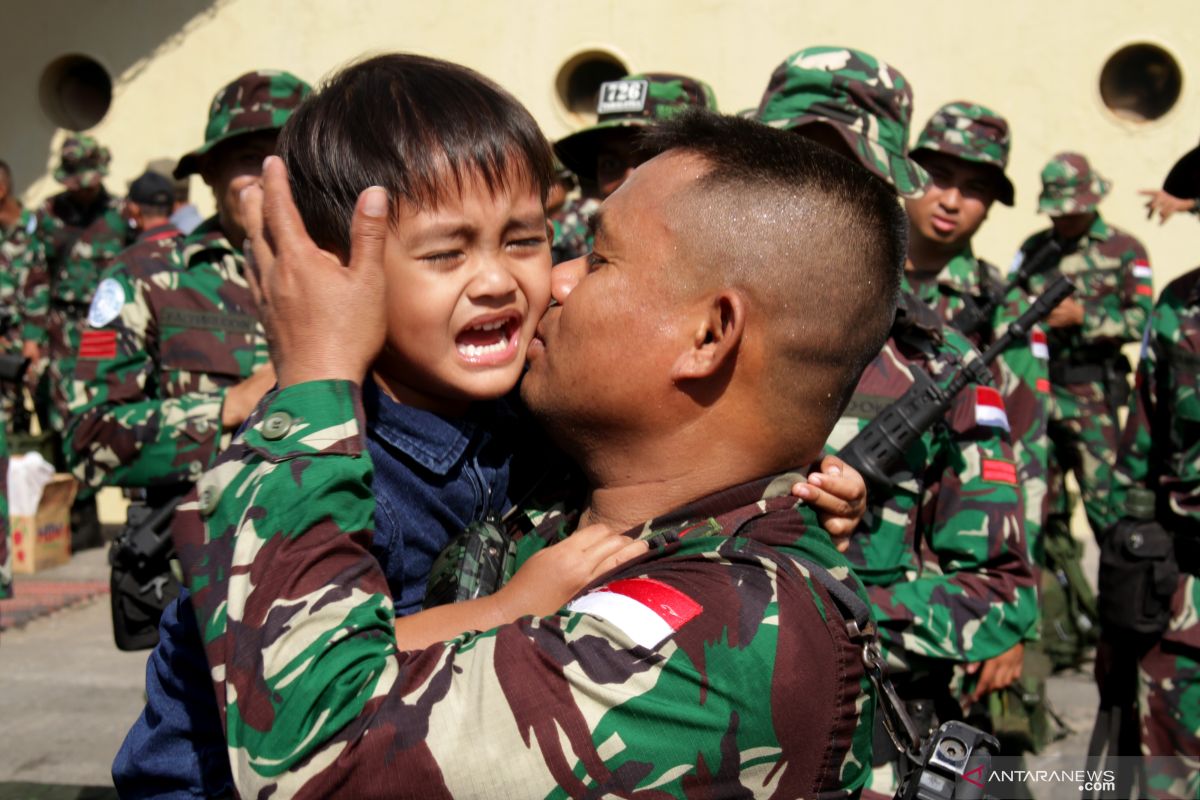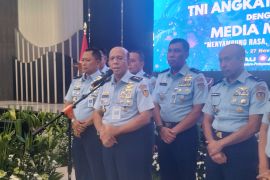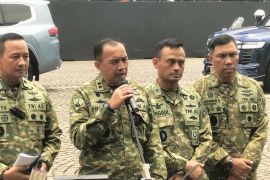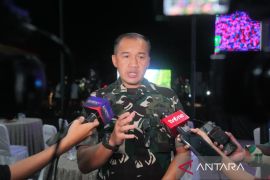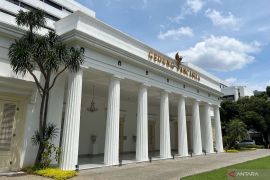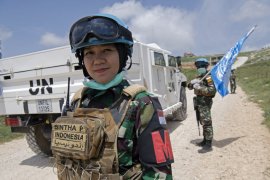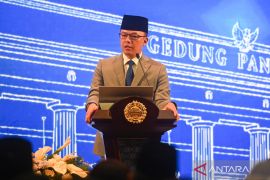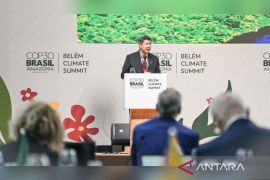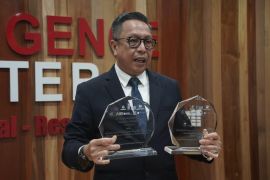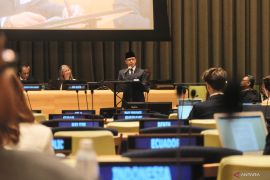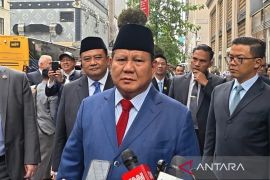The UN peacekeeping mission is a "flagship enterprise”, formed to maintain international peace and security, an objective that is also enshrined in the mandate of the 1945 Constitution of the Republic of Indonesia.
Indonesia's contribution to the UN peacekeeping force began in 1957, when the country sent 559 infantry personnel to serve on the United Nations Emergency Force (UNEF) in Sinai.
This was followed by the deployment of 1,074 infantry personnel (in 1960) and 3,457 infantry personnel (in 1962), as part of the United Nations Operation in the Congo (ONUC) in the Republic of the Congo.
At present, the number of Indonesian personnel serving in various peacekeeping operations is 2,847, including 159 females (based on data as of 30 April, 2020). This number has put Indonesia 8th among 120 Troops/Police Contributing Countries (T/PCC).
The Garuda Contingent Personnel and Troops have been assigned to nine UN peacekeeping operations: UNIFIL (Lebanon), UNAMID (Darfur, Sudan), MINUSCA (Central African Republic), MONUSCO (Democratic Republic of Congo), MINUSMA (Mali), MINURSO (Western Sahara), UNMISS (South Sudan), UNISFA (Abyei, Sudan), and UNMHA (Yemen).
In 2019, Indonesia targeted to send up to 4,000 personnel for various UN missions, but this year, the focus is no longer on quantity, but on the quality of personnel.
"After all, the number of peacekeeping forces globally has also been reduced due to funding difficulties at the UN, and there are several missions that are deemed completed," said Grata Endah Werdaningtyas, director, International Security and Disarmament, Foreign Ministry.
This re-orientation on part of Indonesia is in line with the dynamics at the UN, which is focusing financial and personnel resources on a number of crucial missions, one of which is in Mali, as, in some priority areas, peacekeepers are not only facing internal conflict and civil war, but also the reality of increasing asymmetrical conflicts, threat from armed groups, terrorism, and radicalism, as well as infectious diseases.
Related news: Garuda Contingent plays important role in military diplomacy
Related news: Four points for modern armed forces to support PKO: Fachir
In view of these challenges and the mandate of UN peacekeeping, Indonesia will encourage an increase in critical enablers needed by missions, such as explosives disposal, medical, air field support units, or Specialized Police Teams.
According to Grata, this would demand that Indonesia not rely solely on troop numbers, and instead, focus on use of technology, surveillance capabilities, telecommunications, and build capacity (including land, sea, and air response), so troop movements and tactics can be carried out effectively, efficiently, and targeted for the protection of civilians.
"We have to change focus. So, it is no longer the number that we put forward, but the quality of personnel as individuals and their quality as part of the military unit," Grata stated.
To realize this vision, Indonesia has sent multi-capability troops, including to MONUSCO in the Democratic Republic of the Congo.
One battalion comprising 800-850 personnel sent by Indonesia for the mission could be split into groups that move on a small scale quickly, and handle threats in various security situations.
"If we look at the map of Congo, the country is vast, conflict points are everywhere. But, with the current budget constraints, the UN can only place the core forces in a number of locations; therefore, we need deployments that can move quickly in small numbers," Grata explained.
In addition, Indonesia is also committed to increasing the number and role of female peacekeepers to support the achievement of the UN target of increasing the proportion of female military observers and staff deployed with peacekeeping missions to 15 percent and female police personnel to 20 percent by 2020.
"We need to increase efforts so that the UN peacekeeping missions have a good engagement with the local community. Women have proven themselves capable actors in community engagement," Grata noted.
"Indonesia's achievements are quite good in this regard. Last year, for the first time, we were able to send more than 100 female personnel to carry out peace missions," she added.
As part of the focus on quality, Indonesia will continue to conduct special competency training for peacekeepers.
Training and capacity building for the Indonesian peacekeeping force is also being pursued together with Australia and Ethiopia---two countries that have agreed to explore co-deployment cooperation with Indonesia.
"This co-deployment has never been conducted before. Such an initiative is considered very good by the UN itself," Grata noted.
The actions of the Garuda Contingent under the UN flag reflect the long history of Indonesia's role in helping maintain world peace.
In fact, Indonesia’s participation in UN peacekeeping missions helped in its election as a non-permanent member of the UN Security Council, for the fourth time, for the 2019-2020 period.
While leading the UNSC public debate in New York, last year, Foreign Minister Retno Marsudi stated that the UN peacekeeping mission was a clear example of global partnership, collective leadership, and shared responsibility for peace.
Retno stressed that Indonesia strongly believes in the role of UN peacekeepers and the need for sufficient investment to improve their performance and capabilities on the ground.
According to UN Secretary General Antonio Guterres, improving the quality of training and capacity-building is a joint main commitment of the 'Action for Peacekeeping Initiative'.
"Training saves lives (as) our peacekeepers are placed in increasingly complex and often hostile environments," he said.
"Training can prepare them for vital peace-keeping tasks and improve their performance. And as we know, improving performance can reduce the number of deaths,” Guterres pointed out.
Training is a strategic investment needed in peacekeeping and a shared responsibility between member states and the UN Secretariat, he added.
Related news: Indonesia encourages improvement in performance of UN peacekeepers
Related news: Indonesia pushes for participation of civilians in peace maintenance
Related news: Marsudi confirms no Indonesian peacekeeping force contracted COVID-19
Editor: Sri Haryati
Copyright © ANTARA 2020
